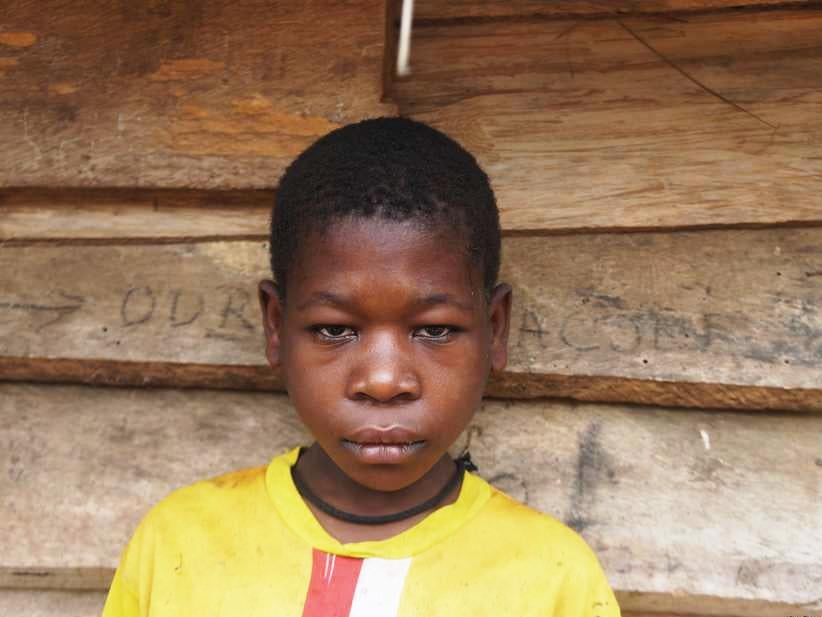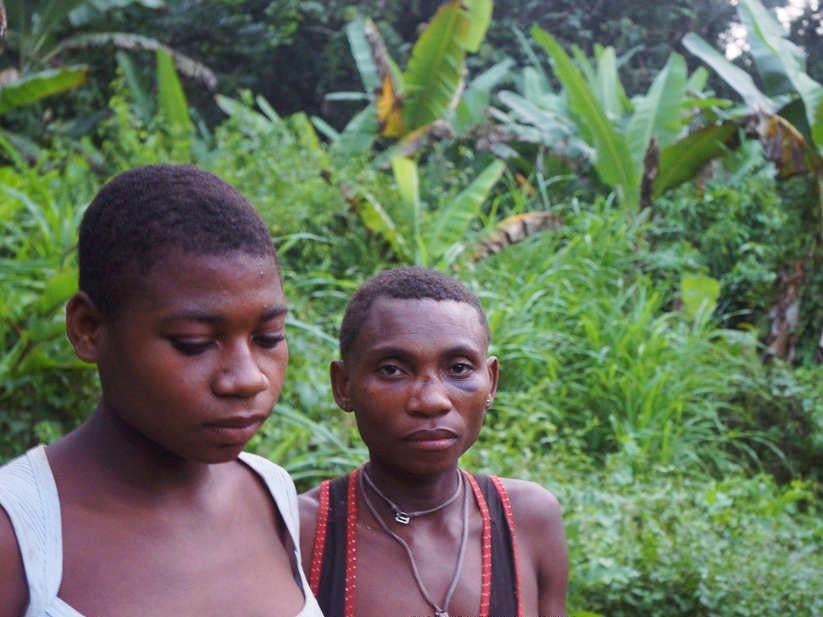Claims of human rights abuses by WWF-backed 'ecoguards' in Cameroon investigated by OECD
Survival International alleges that people were beaten with machetes

Swiss authorities are investigating claims that anti-poaching squads backed by the World Wide Fund for Nature (WWF) committed a series of alleged human rights abuses against the indigenous Baka people of Cameroon.
The Organisation for Economic Cooperation and Development (OECD) will examine claims by Survival International (SI) that "ecoguards", who are employed to protect endangered species from poachers, have engaged in physical and racist abuse of the Baka.
The indigenous rights campaign group said that the guards – who it said were supported financially and logistically by the WWF – had beaten some people with machetes.
In a report to the OECD in Switzerland, where WWF International is based, they said that the Cameroon government's creation of protected ecological areas has displaced the Baka without their consent.
It said the move had "denied or seriously curtailed Baka access to the traditional territories and natural resources on which they depend" and brought them into conflict with the ecoguards who patrol the areas.
The Swiss government will now mediate between WWF and SI in what the latter organisation claimed was an "unprecedented move", because the OECD is normally concerned with multinational businesses.
WWF said that it took allegations of human rights abuses "extremely seriously" and was pushing for a government review of ecoguard conduct.
SI said there had been an "obvious risk to the human rights of the Baka from the outset".
When the ecoguards were deployed the indigenous group was always likely to continue subsistence hunting "as they had always done" it added.
Its timeline of the conflict stretches back to 2001 and claims that in 2008 and 2009 "several" Baka were tortured at a WWF base near Ngatto Ancien. One person later died, it said.
A Baka man also reportedly told the group that ecoguards on one occasion, "beat the children as well as an elderly woman with machetes".
SI director Stephen Corry said: "WWF’s work has led to decades of pain for tribal peoples in the Congo Basin.
"It’s done nothing effective to address the concerns of the thousands of tribal people dispossessed and mistreated through its projects. That has to change.
"If WWF can’t ensure those schemes meet UN and OECD standards, it simply shouldn’t be funding them.
"Tribal peoples are the best conservationists and guardians of the natural world. They should be at the forefront of the environmental movement."

But a WWF spokesman insisted the organisation took "any and all allegations of human rights violations extremely seriously."
They said: "We have worked over the years to verify any alleged abuses, and we have taken all appropriate measures to address allegations brought to our attention, including communicating these to the appropriate authorities."
The organisation was "fully committed to ensuring that conservation work has positive impacts for all people," they added.
"For more than two decades, WWF has dedicated itself to finding lasting solutions to protect forests and wildlife vital to the Baka community in Cameroon," they said.
"During our years of work in Cameroon, WWF has worked closely with the Baka people and other local communities on the establishment of protected areas and strongly advocated for the rights of indigenous people.
"WWF has worked strenuously to obtain improved recognition and rights for the Baka community."
They added that the organisation had been "recently commended by the UN Special Rapporteur as an example of best practice' by international environmental NGOs" for some of its work in the country.
But they said that "members of Cameroon’s civil society, including WWF Cameroon, recognise that there is clearly more work to be done to improve conditions for the Baka people."
They were working with the country's Ministry of Forests and Wildlife to improve the way abuse allegations were received and if substantiated, that appropriated measures were taken, they said.
"WWF has urged and facilitated the employment of Baka ecoguards as well as provided human rights training for ecoguards," they said.
The organisation had voluntarily agreed to take part in the mediation process, they added. But it is not that time the ecoguards have been accused of abuses.
A 2013 report by researcher Sarah Tucker, on behalf of the non-governmental organisation the Centre for Environment and Development said: “Ecoguards employ torture, arbitrary punishment, brutality, and intimidation, creating an atmosphere of fear and horror in [Baka and other tribes'] villages.”
Her study, which is hosted on the UN's human rights website, added that the Baka had occupied Cameroon's forested areas for “thousands of years” and that “their culture is inextricably tied to the forest”. They have been marginalised for decades, she said.
Join our commenting forum
Join thought-provoking conversations, follow other Independent readers and see their replies
Comments